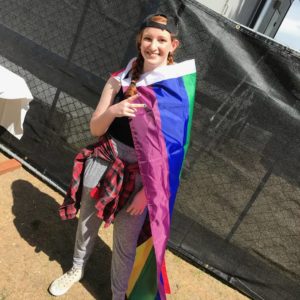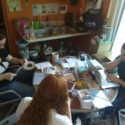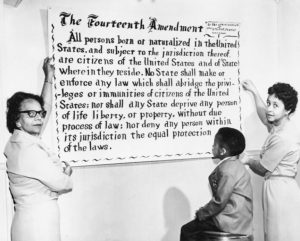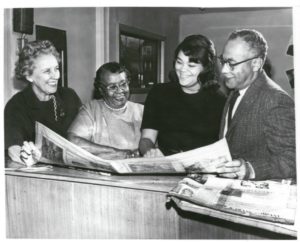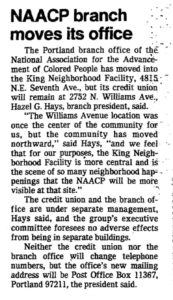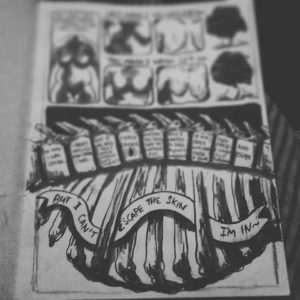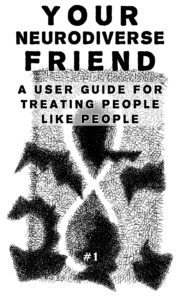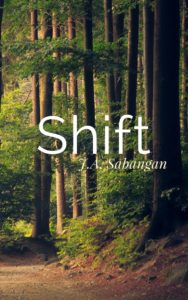Getting Books to the People
My Microcosm Adventure
by Briana Ybanez
intern, Spring 2019
I grew up in a quiet suburb in Southern California, and as someone who is a biracial, Mexican American I didn’t feel like I’d ever have access to literary spaces.
When I was twenty-two I changed my major from business to English. A year later I made an even bigger life change and moved to Portland, which in many aspects is considered a literary mecca. It seems like everyone here reads- encouraged by an endless downpour of rain nine months out of the year. Being in such close proximity to best selling authors and aspiring writers trying to make it in the industry helped lift a creative roadblock that I was experiencing in California. Doubt and fear, all those general symptoms that come with pursuing your dreams, melted away. I began exploring avenues of opportunity available to writers that I wasn’t aware of before.
Part of lifting that mental roadblock that was getting in the way of my success was re-thinking my own relationship with books and reading; rethinking what I was told to regard as a great work of literature and what I actually felt was great. Up until college I was told that the best pieces of literature were written by white men or white women. Period. That was it. But then I was exposed to books that were equally as powerful, if not more so, and were written by Chicana writers, like Lorna D. Cervantes, or Chilean-American Isabel Allende. It’s tragic that this revelation didn’t happen sooner. It took nearly twenty years for me discover these authors, but when I did I finally began to recognize pieces of myself in literature, and that was key to piecing together my own identity — I was finally proud of my roots, not ashamed.

I can say with confidence that I ended up at Microcosm because a seed had been planted during this time period, a desire to figure out how to succeed in spaces that weren’t originally designed for someone like me. I was a big fan of their books and zines after discovering them at Portland’s Book Festival. I thought they were cool and edgy but also geared towards empowering audiences that you typically don’t see represented in publishing: LGBTQ, people of color, activists, people with mental disabilities, and even those who struggle with mental health.
During my interview for the internship position, I was asked why I wanted to join a publishing company. “What are you looking for?” they asked. At the time, I wasn’t sure how to answer that. I only knew that reading and writing had been a lifelong passion of mine. I was always the weird kid with my nose in a book, looking for the answers to my curiosities, or waiting until the moment when I could run home from school and find out what happened to whatever character I was currently reading about. Did I actually know anything about how those books that I loved so much were published? Definitely not.
When I learned that I got the internship, I was ecstatic. Reading their titles alone was a breath of fresh air and it is what ultimately brought me to Microcosm, because I knew that inclusivity for anyone that isn’t middle class, or white, is a huge problem in book publishing.
An infamous survey by Lee and Low Books, The Diversity Baseline Survey, indicates that the industry is 79% white, and only 4% identify as Mexican, Hispanic, or Latino. A 2016 Publisher’s Weekly article highlights that the homogeneity of the industry is not entirely due to publishing companies’ hiring practices. Although the industry giants have made claims to diversify their workforce, census data shows that the lack of diversity in publishing is also a symptom of a lack of access to higher education for people of color. Recent census data shows that 73% of Americans with college degrees are white. So a lack of authors, editors, and publishers that aren’t white can be traced to a much larger issue rooted outside of the industry itself.
Why does this matter and what does this have to do with Microcosm? It matters when you consider the immense power that the book publishing industry holds. Its impact on civilization is so far reaching, it’s scope is beyond measure. It’s an industry that is responsible for cultural production and intellectual movements, a vehicle of influence for individual minds and entire societies. Clearly, it’s time that the industry take notice of a wider audience, one that would like to see itself reflected in what they read. Microcosm intends to do just that and it shows in their business practices. They recently broke most of their ties with Amazon because their monopoly on the industry has been harmful for authors and publishers. And they not only offer their books and zines for underrepresented groups, but they offer them on a sliding scale price, to reach people that are disenfranchised by a lack of money.
After struggling with the idea that this industry may not accept me, you can imagine my excitement after taking this position. I knew this was where I wanted to be and where I could explore my place in the industry. But I was still worried that the environment would be cut throat and I’d crumble under the pressure. Now, nearly two months into my internship, I haven’t crumbled and the environment isn’t cut throat — quite the opposite in fact. Interns are encouraged to ask questions and grow from our time spent here. Once, the interns were invited in on a meeting where they reviewed the company’s past year performance. I was surprised by how business-focused the whole meeting was, and it was also eye opening because as an avid reader, it’s easy to forget that the book you’re holding in your hands didn’t end up there because of the author alone.
Microcosm has taught me that behind every book is an entire community of people. In this environment, it’s hard to ignore the work that goes in to getting books to the people. On a daily basis there’s constant contact with customers, from mailing catalogs, to making phone calls, to talking face to face with people who stop into the store.
This little community at Microcosm has revealed to me the importance of the day-to-day efforts required to publish and sell books in an ethical way. A small, independent company that stands on a firm foundation of integrity, its ultimate goal is to use their resources and means to carry a message that empowers their audience, to preserve and transmit knowledge, one book (or zine) at a time.

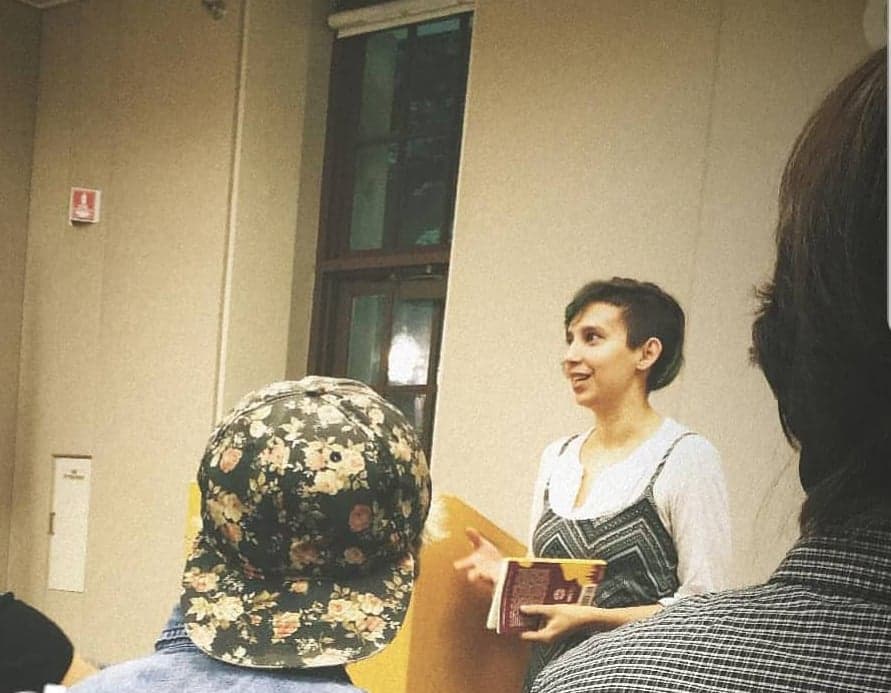
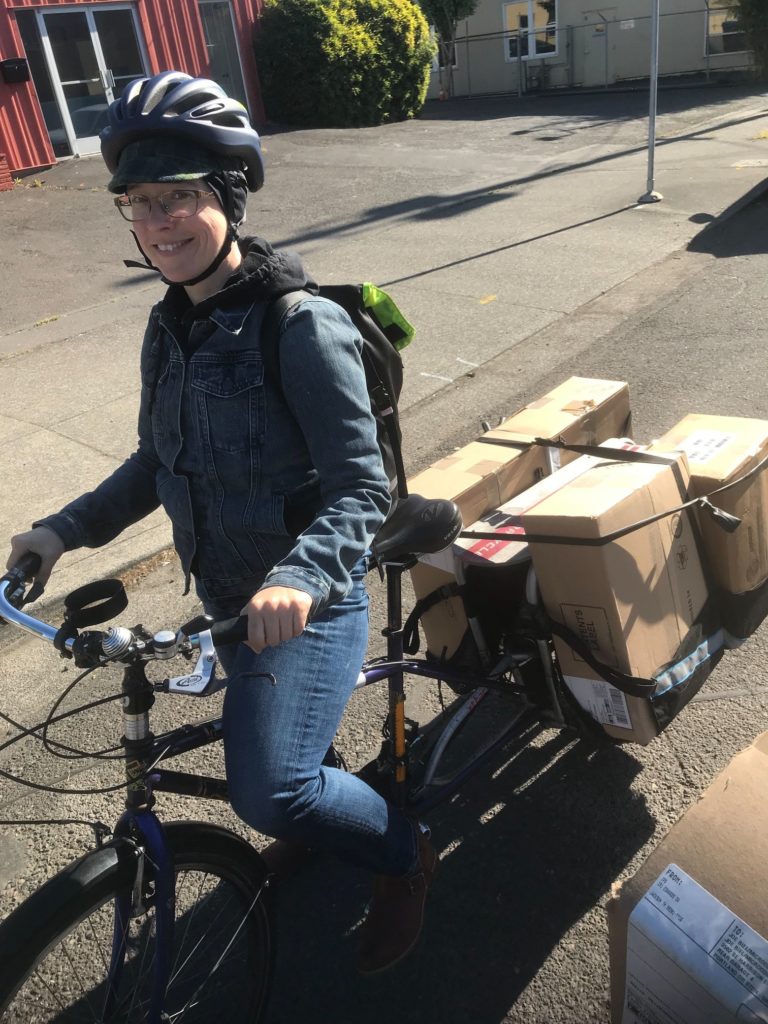
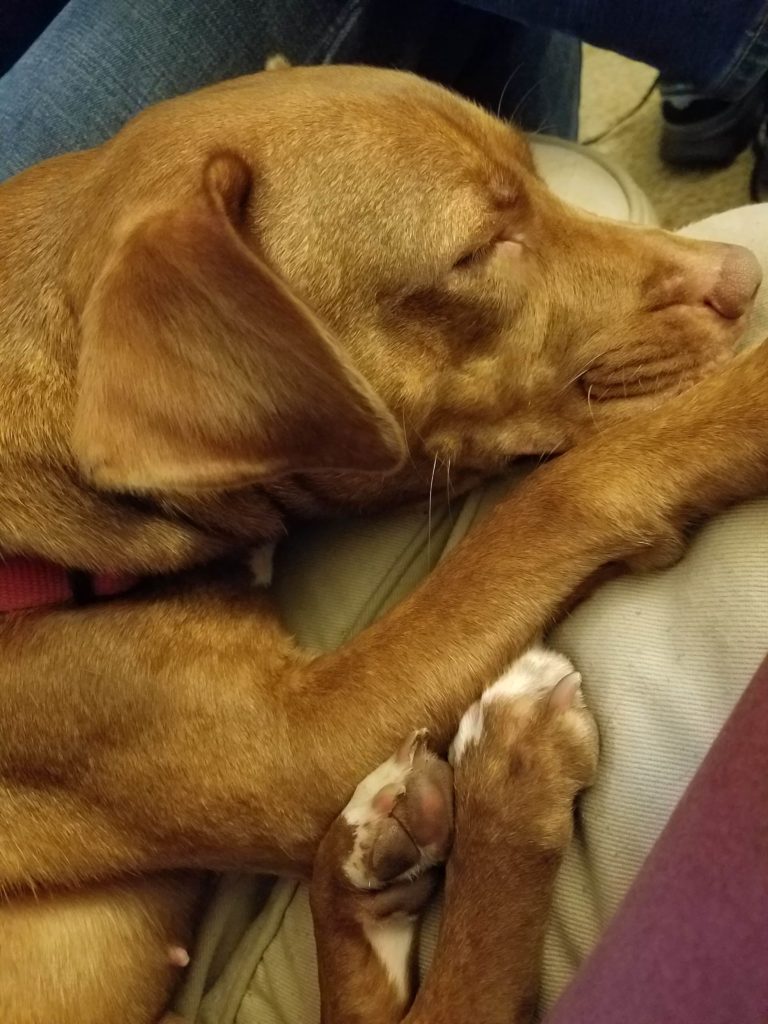


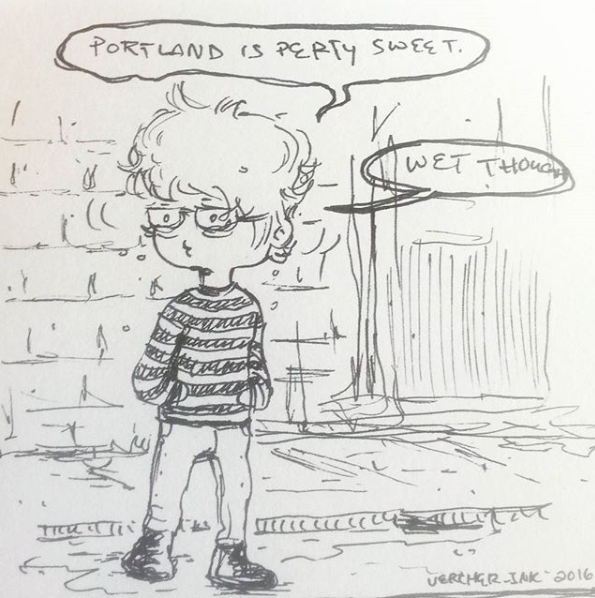

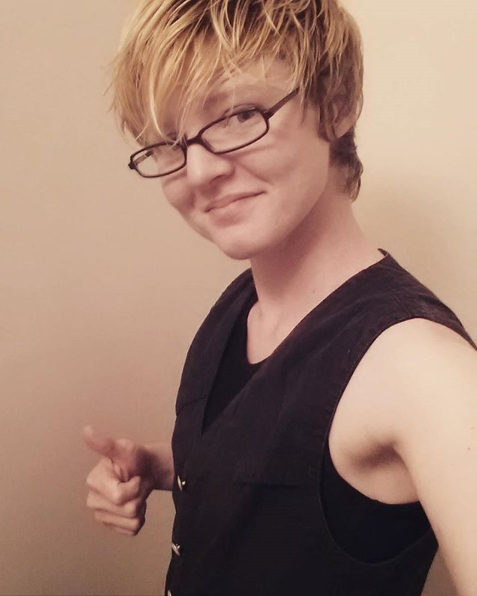
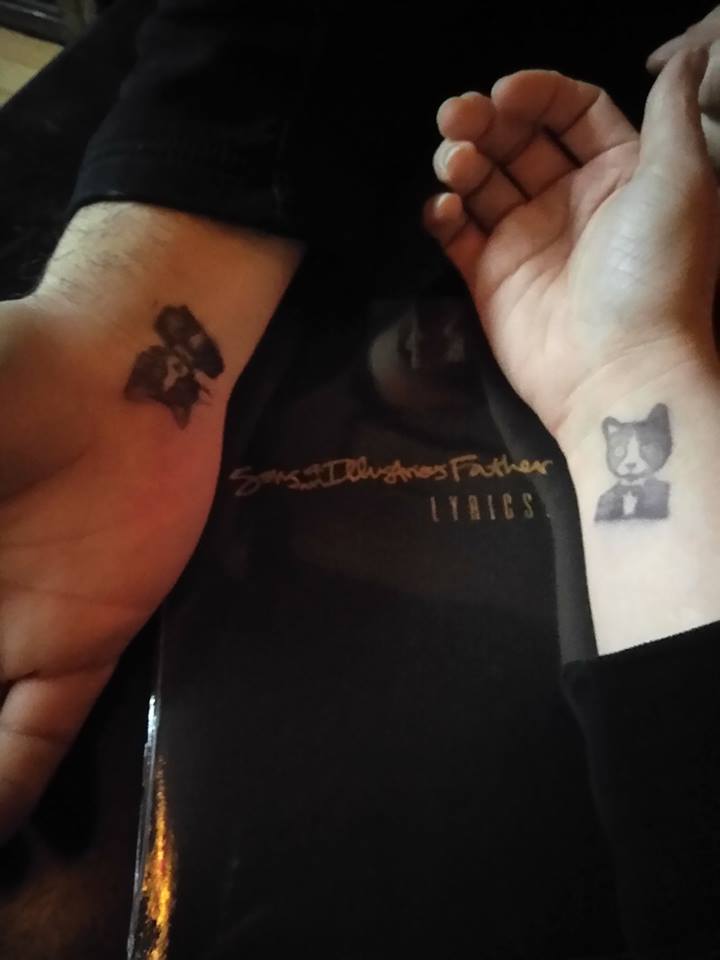
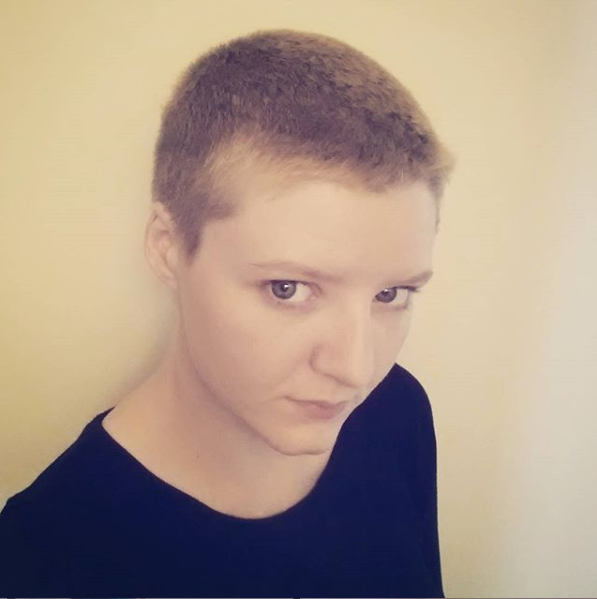

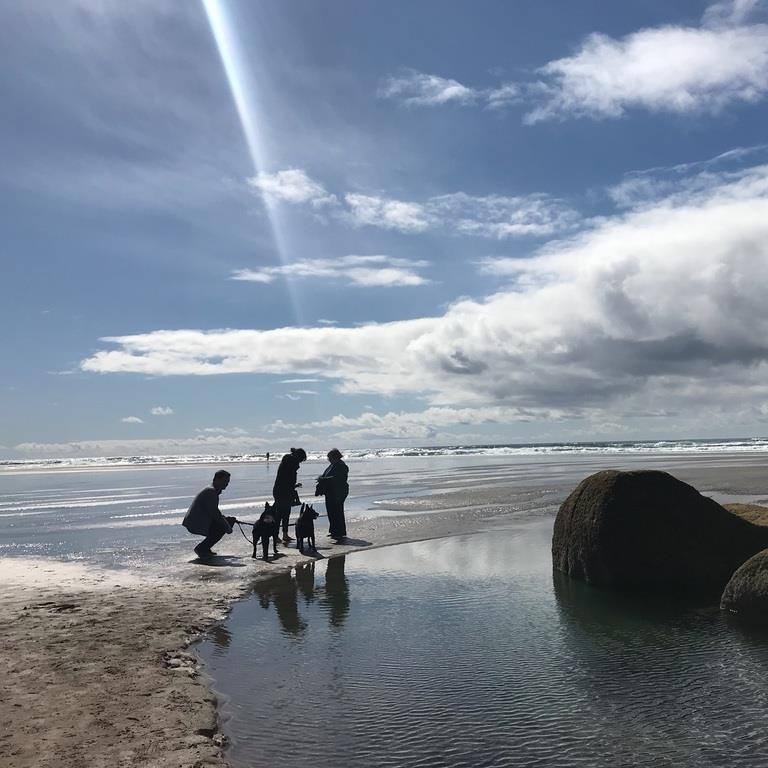


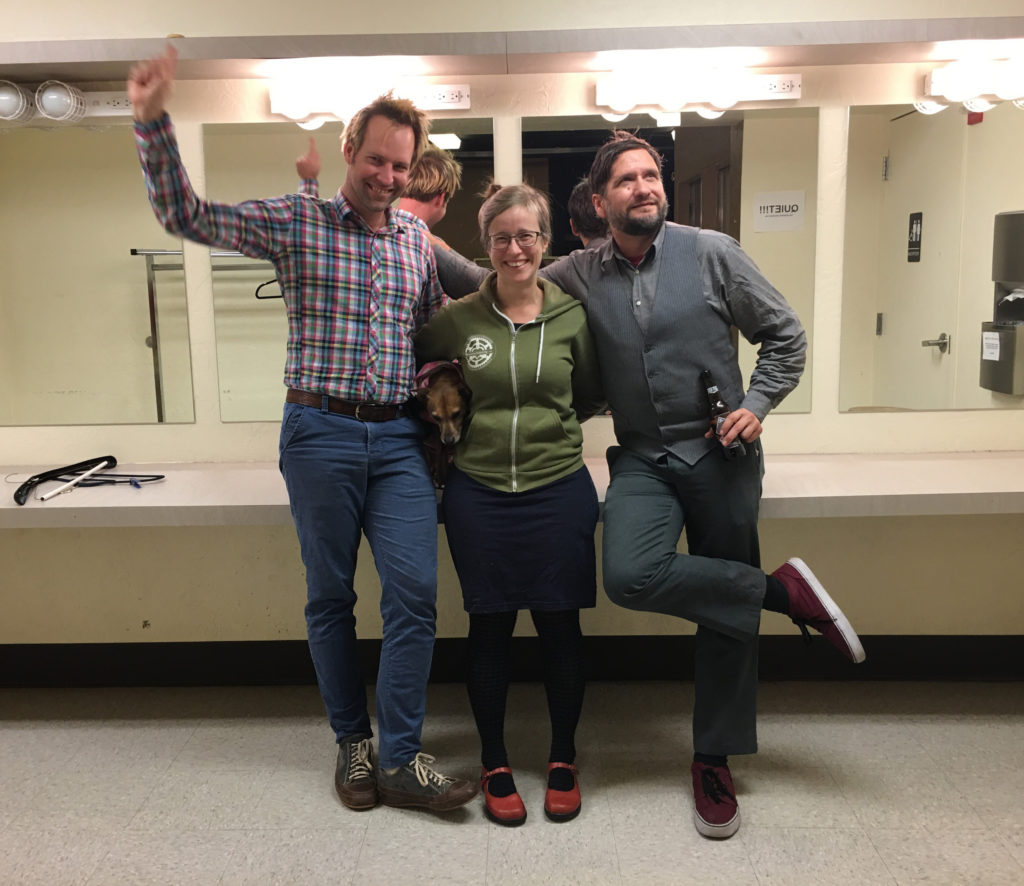

 A couple of months ago I was lucky enough to be accepted as a summer intern at Microcosm Publishing. I’m from California, which meant that I would be spending the summer moving to a brand new city completely separate from my family, friends, and basically everything I know. I won’t say that this wasn’t a little scary; it was. But the opportunity was far too great to pass up. So I moved up the coast and settled myself into the City of Roses.
A couple of months ago I was lucky enough to be accepted as a summer intern at Microcosm Publishing. I’m from California, which meant that I would be spending the summer moving to a brand new city completely separate from my family, friends, and basically everything I know. I won’t say that this wasn’t a little scary; it was. But the opportunity was far too great to pass up. So I moved up the coast and settled myself into the City of Roses.

